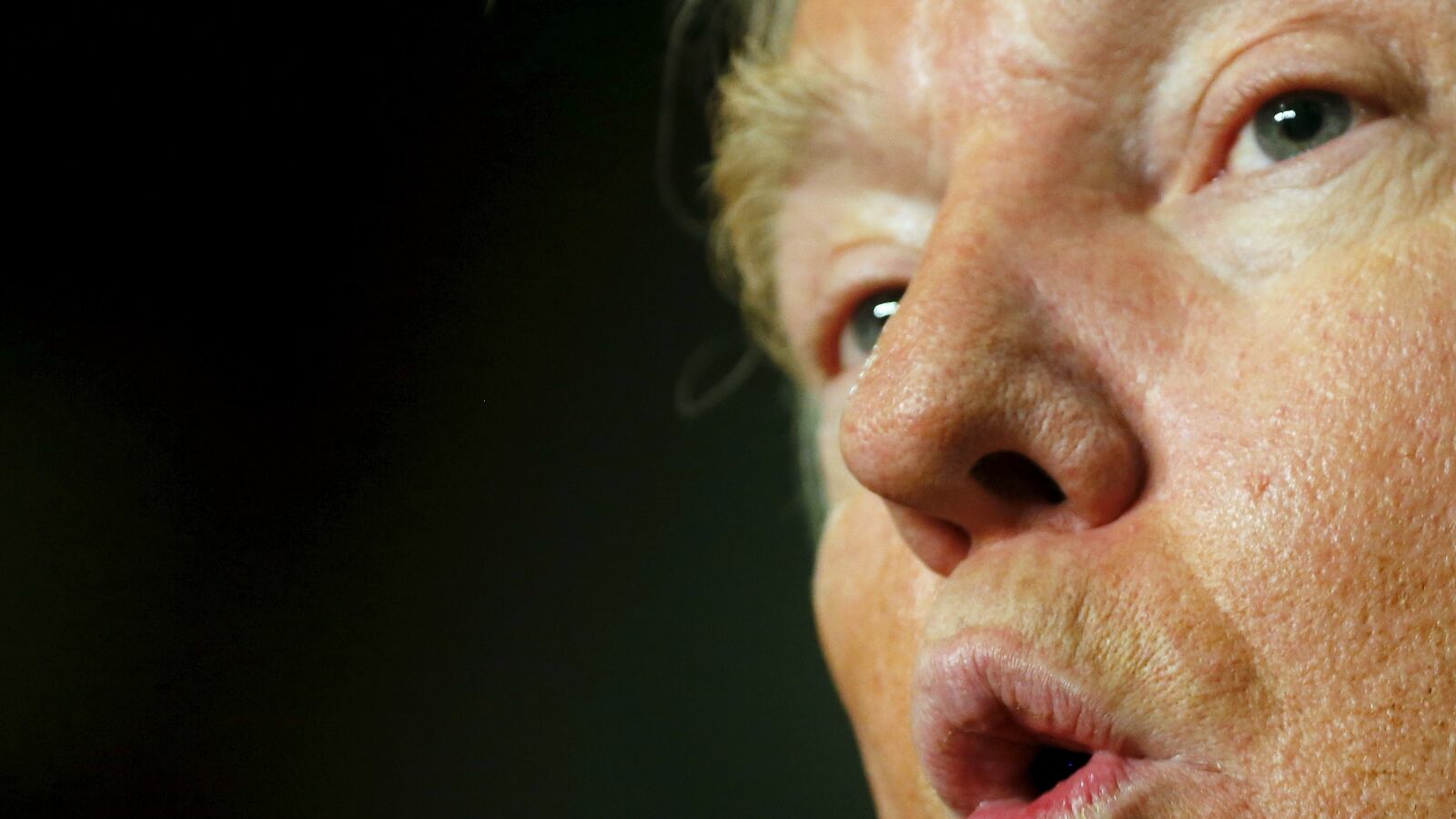A once-familiar element of campaigns past has returned this cycle—one we haven’t seen in quite some time. It’s the Expectations Game, and its reappearance, like Proust’s madeleine, brought back memories of a much earlier time, when I learned the wisdom of an old aphorism: I’d rather be lucky than good.
As the Iowa caucus nears, the campaign of Marco Rubio is engaged in a vigorous tug of war with opponents and the media to try to establish what showing would dub Rubio as The Alternative to Donald Trump and Ted Cruz. Over in New Hampshire, no less than four candidates—Rubio, Kasich, Bush and Christie, are fighting to do Better Than Those Other Guys, in the hope that Those Other Guys will leave the field.
There’s a nostalgic pleasure to this return, as it’s been almost a quarter-century since Expectations proved potent, when Bill Clinton converted his second-place showing in New Hampshire into a “Comeback Kid” trope, managing to make Paul Tsongas’s 10-point victory an afterthought. In the years since, it’s been outright victories that have fueled candidacies—McCain in New Hampshire in ’00 and ’08, Kerry and Obama in Iowa in ’04 and ’08.
It was a very different story when I began my life in politics, nearly half a century ago, as an operative and then a journalist. Election after election saw candidates suffering serious, even fatal setbacks not by losing, but by falling short of the goals their campaigns, or the ones the Media Consensus had set. In 1968, President Johnson actually won the New Hampshire primary on a write-in. But because the antiwar campaign of Sen. Eugene McCarthy racked up 42 percent of the vote—a tally far higher than his shoestring campaign had been expected to achieve—LBJ’s status was weakened, Sen. Robert Kennedy jumped into the race, and Johnson withdrew less than three weeks later.
Four years later, Democratic front-runner Sen. Edmund Muskie won the New Hampshire primary handily with more than 46 percent of the vote. But he was a neighbor; the 1968 VP nominee; the consensus favorite. Since he didn’t win more than 50 percent of the vote, George McGovern’s 37 percent runner-up finish was deemed the greater achievement; by mid-spring, Muskie was out of the race.
In 1976, it was the Republicans’ turn to play. Ex-Governor Ronald Reagan, challenging President Ford, came within 1,300 votes of beating Ford in New Hampshire. A tie against a sitting president could well have been seen as a major win. But Reagan’s campaign had been boasting of an early knockout blow; it circulated a poll showing Reagan well ahead. So the tie became a Reagan defeat, setting back his campaign badly enough to have made the difference in that close battle for the nomination
So in 1984, when I went out to cover my first campaign as a network correspondent, this Expectations Game was very much in the front of every journalist’s thinking. For a long time, however, it seemed that it wouldn’t be in play that year. Ex-Vice President Walter Mondale was the obvious, inevitable nominee. Labor loved him; African-Americans backed him. The overwhelming majority of elected Democrats endorsed him. The only opponent with any shot at beating him was Ohio Sen. John Glenn, the ex-astronaut—whose campaign was supposed to get a big bump with the release of The Right Stuff, a movie celebrating the early astronauts.
There was no sign that anybody saw Colorado Sen. Gary Hart as a formidable foe. He had been McGovern’s campaign chief during the 1972 debacle. He had no money. He had no name recognition. And as 1984 approached, there was no sign that Hart or Glenn or anyone else would interfere with the coronation. Mondale himself called the campaign “the sweetest primary in history,” and politely declined to debate.
So when Mondale won the Iowa caucuses in a landslide, winning more than 48 percent of “state delegate equivalents” (don’t ask), it seemed like more of the inevitable. As New Hampshire grew near, The New York Times reported that Mondale had attained the biggest lead of any non-incumbent in modern poling history.
So Nightline producer Susan Mercandetti and I had an idea: Why not profile what it was like to work on a clearly doomed campaign. We found our perfect subject in the person of a just-out-of-college Hart supporter, working virtually alone in a tiny office in Concord. What a perfect contrast: our Sisyphean staffer, fighting a hopeless battle against the overwhelming force of the Mondale Machine.
Pretty shrewd, yes?
No.
Here’s what we, and just about everyone else, missed.
It turned out that a large chunk of the Democratic primary electorate was looking for an alternative to Mondale. Maybe they thought he was too much a symbol of the past, or too identified with the orthodoxies of post-New Deal liberalism that Hart was challenging with his “new ideas” campaign. Whatever the reason, it turned out that this chunk had been looking for a signal—a signal that would tell them who the “Not Mondale” candidate was. By beating expectations in Iowa, and by coming in as the second-place finisher—even if it was by a margin of a few hundred caucus-goers, even if Mondale had beaten him 3-1—Hart had become Not Mondale.
There was no real sign of this, even the weekend before the New Hampshire primary, when the Democratic candidates gathered at the castle-like Sheraton Tara for a “victory dinner.” Actually, in the interest of full disclosure I can’t be really clear about what happened that night. After a day of reporting, the cameraman rewarded me with a Very Special Cigarette. After consuming the entire VSC, I wandered down to the gathering, noticing armies of Secret Service and other law enforcement types with two thoughts in my mind:
1. I am about to be busted, and my career is seconds from ending.
2. This is a gut-busting hilarious situation.
(That may explain why I spent much of the “victory dinner” bursting into peals of laughter no matter what the candidates said. “We’re at risk of nuclear annihilation.” “Ha ha!!”)
On primary day, I was in New York; our piece, a poignant look at a losing effort, was cut and ready to air. I called Nightline and my producer snapped, “Where the hell are you? Get up here now! Hart is busting Mondale’s butt!”
What to do? We couldn’t exactly run this elegiac piece about a campaign that was on its way to a landslide win. So, as the NFL announcers say about a quarterback, we “audibilized.” When Nightline aired, we proudly presented a piece, obviously based on our incredibly prescient assessment of the campaign, of how a small guerrilla army, exemplified by our Concord staffer, had affected the Mighty Mondale Machine.
In the days that followed, we modestly accepted congratulations from our colleagues for our insight into the mysteries of American politics, and our laser-like insight into The Expectations Game.






